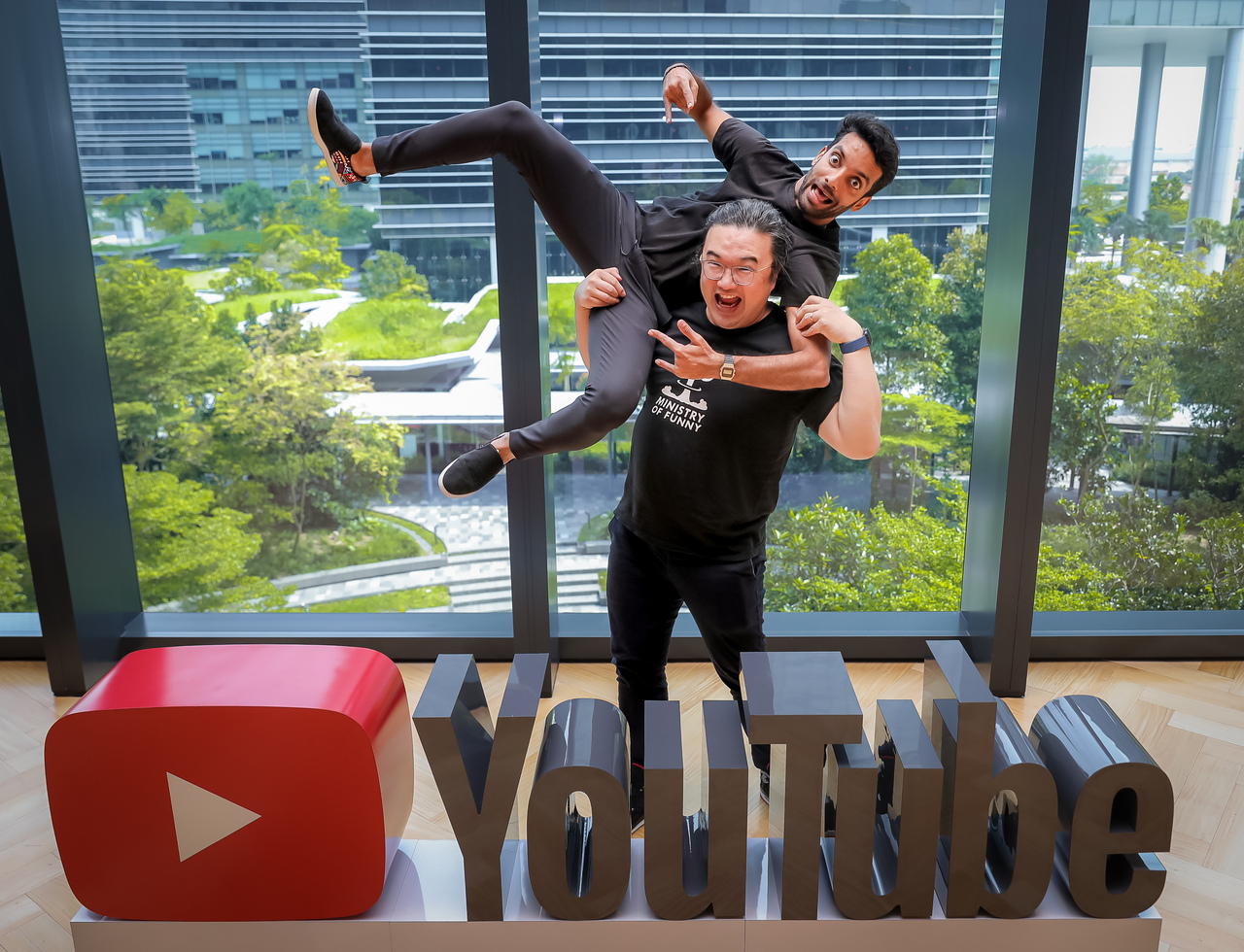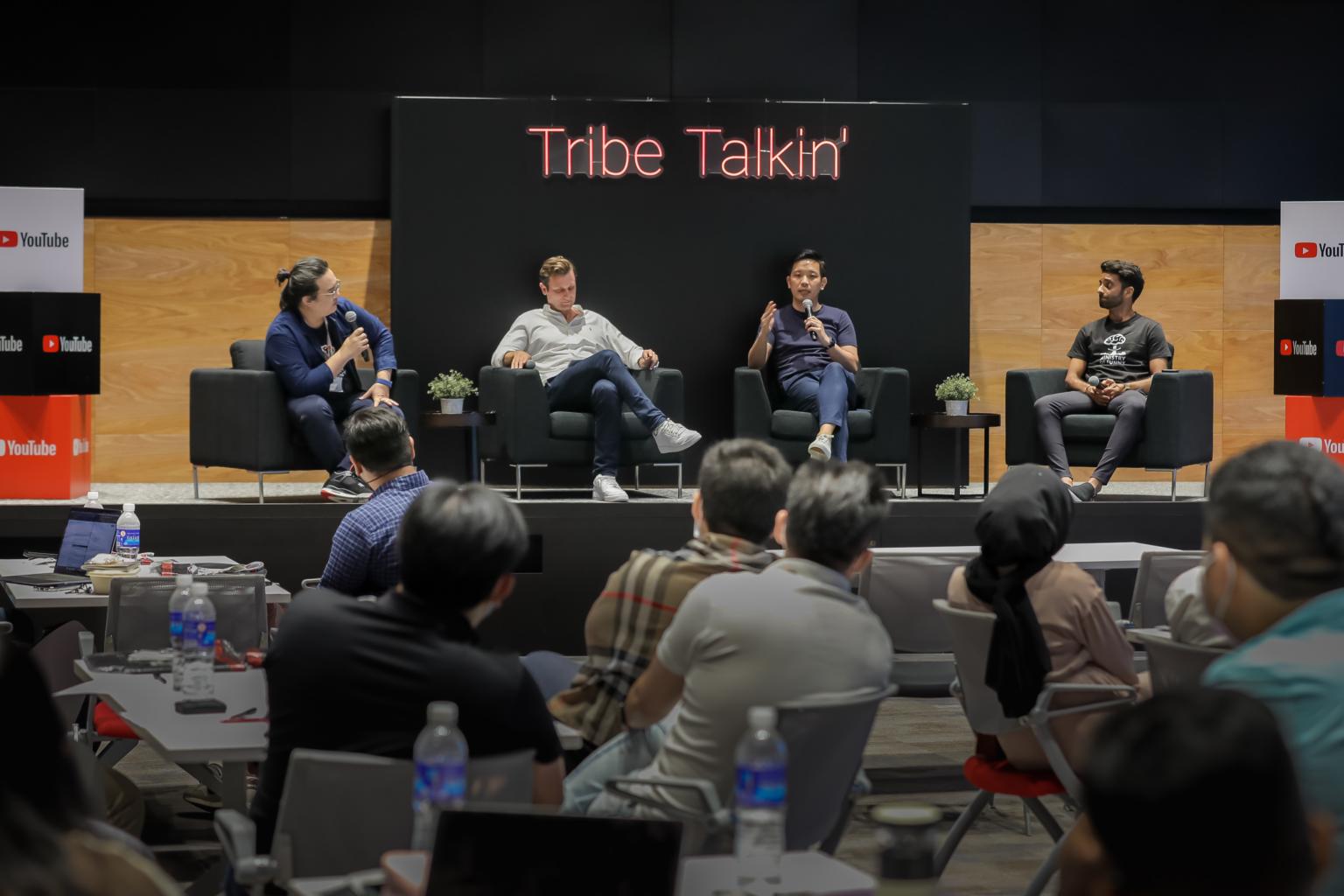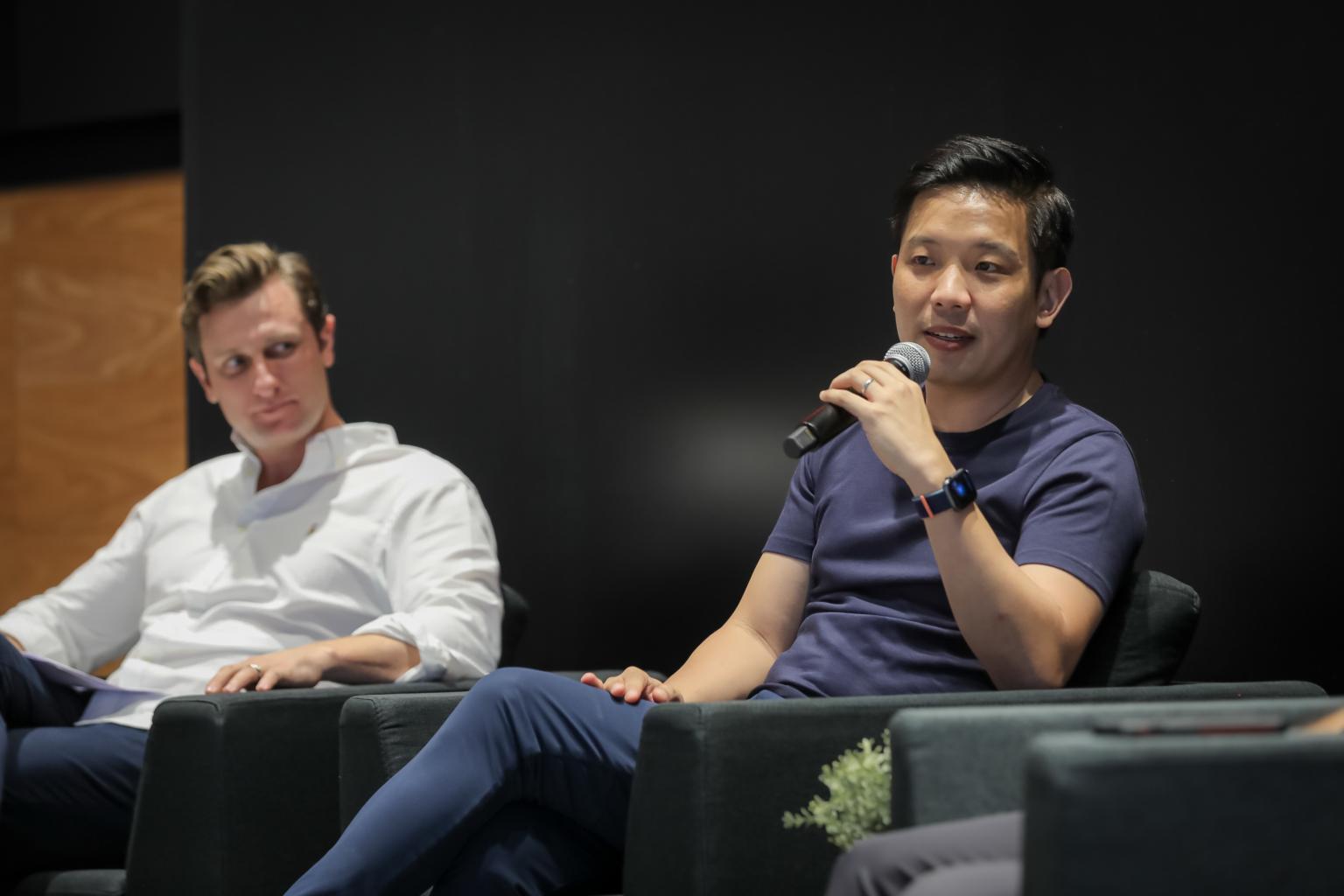Learning how to tackle extremism from a couple of comedians
Sign up now: Get ST's newsletters delivered to your inbox

Mr Haresh Tilani and Mr Terence Chia are better known for their comedic videos and discussion of serious issues on podcast, Yah Lah But.
ST PHOTO: GAVIN FOO
SINGAPORE - Revelations that two young people had been planning extremist attacks in Singapore stunned the co-founders of comedy YouTube channel Ministry Of Funny.
Mr Haresh Tilani, 38, and Mr Terence Chia, 39, are better known for their comedic videos and discussion of serious issues on podcast Yah Lah But.
On Saturday (April 30), YouTube launched a series of workshops conducted by the duo to guide members from interfaith groups and religious organisations to create online content tackling the issues of online extremism and hate.
The duo were concerned after reading about the 16-year-old boy who was detained in Dec 2020 for planning to attack two mosques in Sembawang and Woodlands.
He had planned to commit the attacks on March 15, 2021, the second anniversary of an attack in mosques in Christchurch, New Zealand, that saw 51 people killed.
Then, there was the incident involving the 20-year-old man who was arrested in February last year for planning to kill Jews leaving a synagogue.
Titled Tribe Talkin': How to Start Conversations on Difficult Topics, the workshops are part of an ongoing collaboration between YouTube and the Ministry of Culture, Community and Youth.
Minister of State for Culture, Community and Youth Alvin Tan was present at Saturday's launch.
Mr Haresh and Mr Chia spoke about how humour can be a good entry point to discussing sensitive issues.
Said Mr Chia: "We wanted to share our experience, try and condense it for this group of people who are trying to reach out to their communities, different generations and to people outside their own faith as well."
Mr Haresh said after the workshops, he hopes to see religious organisations dabble more in online content and for them to be in it for the long term and to not just stop after producing one or two videos.
Over three sessions at Google's Asia-Pacific headquarters in Mapletree Business City, Mr Haresh and Mr Chia will be sharing tips such as how to generate and select ideas for content with the 34 workshop participants who come from 20 interfaith groups and religious organisations.

They include the Taoist Federation and the Inter-religious Organisation Youth Wing.
The participants will be split into various groups and at the final session, they will pitch a video concept.
The winning group will get a $10,000 grant that will be equally shared among the organisations represented by the winning team.
These organisations will also receive a short-term mentorship led by YouTube content creators, Our Grandfather Story, The Daily Ketchup Podcast, itsclarityco, and Overthink, to help expand their content creation efforts.
One of the participants at the event was Mr Muhammad Khidir Haji Mohamed Ibrahim, 28, a mosque religious officer at Masjid Al-Islah, who focuses on community outreach for the mosque in Punggol.
He said: "I really want to learn more about content creation with the main notion of eradicating violent extremism and also (any) radicalisation mindset that we might have in our community.
"It is important for us to have videos about such pertinent topics online but sometimes it is difficult for us to come up with ideas. Also some issues are sensitive."

During a dialogue on Saturday, Google Singapore country managing director Ben King said that being able to recommend consumers authoritative content, apart from the content they are used to, in order to foster empathy for other view points and beliefs is important for platforms.
He added: "I think the danger is that people watch the same videos over and over again and this leads to a continual development of bias. We don't want that, we want inclusion, understanding and empathy."


